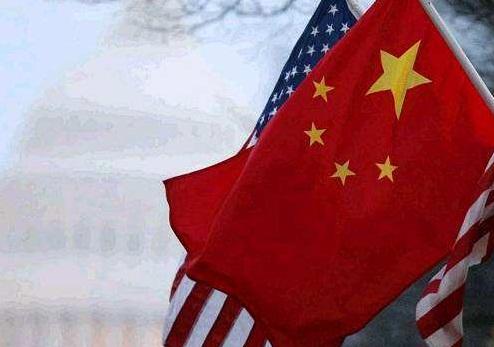
BEIJING, Apr. 3 (Xinhua) -- China on Monday again urged the United States to revoke it protectionist measures, amid escalating friction between the world's two largest economies.
The measures abuse the security exception clause of World Trade Organization (WTO) rules and go against the principle of non-discrimination in multilateral trade, the Chinese Ministry of Commerce (MOC) said in an online statement.
Despite strong warnings from business groups and trade experts, President Donald Trump last month signed a memorandum that could impose tariffs on up to 60 billion U.S. dollars of imports from China and restrictions on Chinese investment in the United States.
The move came after the U.S. administration took an increasingly hawkish turn on China, as it blamed its trade deficit with major trading partners for its domestic economic woes and job losses. It decided to impose a 25 percent tariff on steel imports and 10 percent on aluminum, with China as the major target.
"China's interests have been seriously damaged," the MOC said.
To balance losses caused by the U.S move, the ministry proposed countermeasures on U.S. products worth about 3 billion U.S. dollars on March 23 and solicited public opinion.
Based on domestic support, the policy has been put into effect. The Ministry of Finance on Monday announced a 15-percent tariff on 120 items from the United States including fruit, and a 25-percent tariff on eight items including pork.
China had worked out measures to boost imports and widen market access to mitigate tension with the United States, but to no avail, analysts said.
The two sides have failed to reach a consensus as the United States declined to respond to China's requests through the WTO for consultation, the MOC said. "As a WTO member, China has the right not to meet some former obligations to the United States."
WRONG BATTLE
The United States' goods trade deficit with China is considered the main reason for President Trump's stance, but the figure is inflated and does not show the full picture of China-U.S. economic ties.
Trump exaggerates the deficit, Stephen Roach, a senior fellow at the Yale University Jackson Institute for Global Affairs, said at a Beijing-based think tank event.
A hefty part of the deficit comes from the supply chain effect, which means components are just assembled in China but originally produced elsewhere, Roach said and estimated the figure could be cut significantly if adjusted accordingly.
"Politicians have no patience for statistics -- they find it much easier to point the finger at China," Roach said.
The United States has a huge service trade surplus with China, and the gap has been widening.
China's service trade deficit totaled 255 billion U.S. dollars last year, with the United States as a major contributor. From 2006 to 2016, the deficit with the United States increased more than 30-fold.
Given the situation, the decision to raise tariffs is improper and dangerous, and likely to cause losses for the country and its trade partners.
"I am quite worried about the potential for escalating trade conflict between the United States and China," Roach said. "Maybe Trump is bluffing... but we can not afford to ignore the risks. The stakes are too high for all of us."
COOPERATION; ONLY COOPERATION
Despite the friction, China is still interested in economic cooperation for mutual benefit.
"Cooperation is the only valid option for China and the United States," the MOC said, calling for dialogue and consultation to avoid more harm to the broader picture of China-U.S. cooperation.
For decades, China-U.S. economic ties have expanded steadily and generated huge benefits for people on both sides.
Trade friction may be unavoidable but what matters is bridging differences through reasonable talks and exploring new fronts for cooperation, said Long Guoqiang, deputy director of the State Council development research center.
Economists believe that the tariffs plan will backfire in any case.
"U.S. consumers will bear the costs of the Trump administration's tariffs," said Justin Yifu Lin, dean of the Institute for New Structural Economics of Peking University.
As U.S. consumer demand for daily necessities will not change simply by raising the costs of imported products, the United States will either continue to import from China or it will import from Vietnam, India and other countries where prices are already higher. The result will be the same: U.S. consumers will pay more for the same products, Lin said.




 A single purchase
A single purchase









